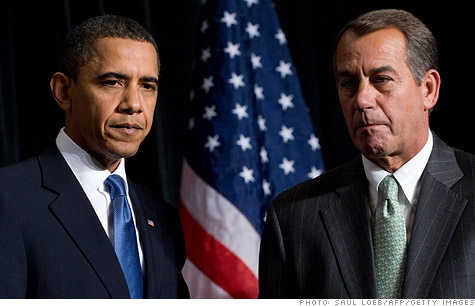Who Broke the Government?

In my column for CNN, I explain why government institutions are failing:
Under the old rules, there were certain things that political parties did not do -- even though theoretically they could. If one party controlled the Senate and another party controlled the presidency, the Senate party did not reject all the president's nominees. The party that controlled the House did not refuse to schedule votes on the president's budgets. Individual senators did not use secret holds to sway national policy. The filibuster was reserved for rare circumstances -- not as a routine 60-vote requirement on every Senate vote.
It's incredible to look back now on how the Reagan tax cut passed the Democratic House in 1981. The Democratic House leaderships could have refused to schedule votes on Reagan's tax plans. Instead, they not only allowed the tax plan to proceed -- but they allowed 48 of 243 Democrats to break ranks on the key procedural vote without negative consequences to their careers in the Democratic party. (Rep. Dan Glickman of Kansas, for example, who voted for the tax cuts would rise to become Secretary of Agriculture under President Clinton.)
Hard to imagine Speaker John Boehner allowing his Republicans to get away with similar behavior on a measure proposed by President Obama.
What's happening before our eyes is that the US congressional system is adopting the attitudes of a Westminster-style parliamentary system.
In a parliamentary system, "the duty of an opposition is to oppose" (in the famous words of Benjamin Disraeli). The opposition uses every trick and technique to thwart and defeat the government; the government uses all the powers of a parliamentary majority to overwhelm the opposition. (To quote Disraeli again: "a majority is always better than the best repartee.")
Then, at regular intervals, the two sides switch roles.
In the American system, there is no "government" and no "opposition." Who would lead such a "government"? President Obama? Or the man in command of the majority in the lower House -- Prime Minister John Boehner?
Click here to read the full column.

